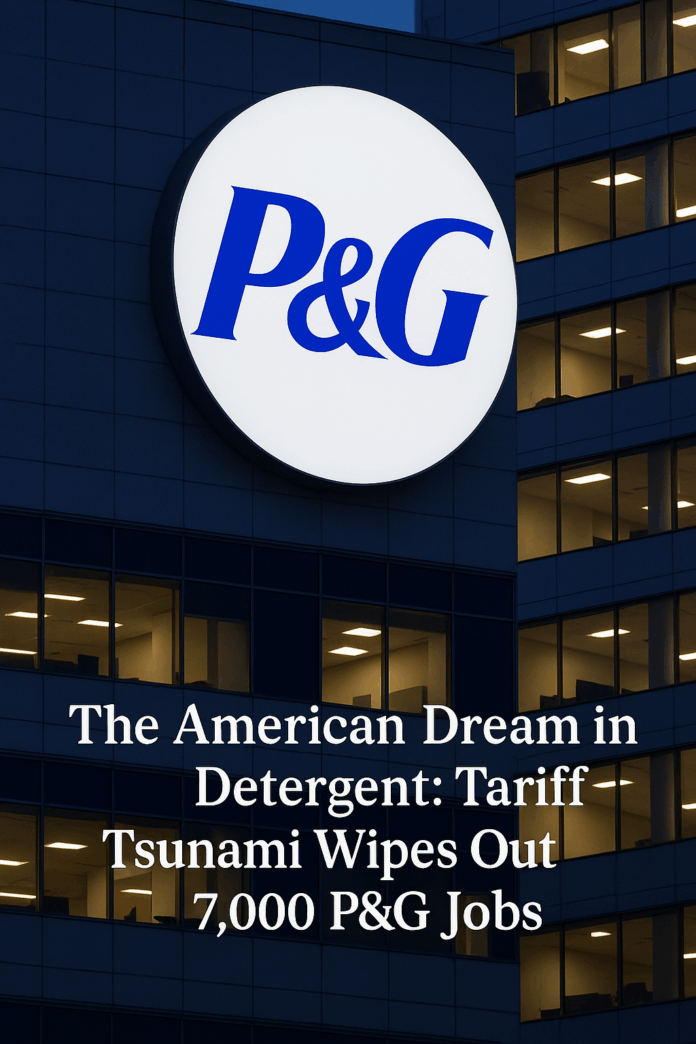Detergent Maker Procter & Gamble (P&G), the company also known for making Pampers diapers, announced it will cut about 7,000 jobs over the next two years. This is nearly 6% of its total workforce. The company says these job cuts are part of a big plan to restructure how it works because the business environment is becoming tougher.
This plan means P&G will also stop making some products in certain markets. The company wants to focus on what it does best, but that means some people will lose their jobs. Right now, P&G has around 108,000 employees, so cutting 7,000 jobs is a big deal.
Most of these cuts will affect workers who do not work in factories. About 15% of non-manufacturing roles—jobs in offices and other support areas—will be impacted. The company shared these details at the Deutsche Bank Consumer Conference held in Paris, where top executives including Chief Financial Officer Andre Schulten and Chief Operating Officer Shailesh Jejurikar spoke about the plan.
Tariff Shockwave: Millionaires Swarm Dollar Stores as Prices Skyrocket!
Tariffs Creating Problems for Detergent Maker
One of the biggest reasons for this decision is the rising cost of doing business, especially because of tariffs. Tariffs are special taxes that are added when a country imports goods from another country. The United States, under former President Donald Trump, placed tariffs on several trading partners, including China.
These tariffs have made things more expensive for companies like P&G. The company brings in raw ingredients, packaging materials, and some finished goods from China. Even though 90% of what P&G sells is made in the United States, the extra cost of imported materials is still a big burden.
The detergent maker now expects a loss of around $600 million before taxes in the 2026 financial year, based on current tariff rates. According to Schulten, these added costs are a major concern, and the company is preparing by taking strong action now. The trade war so far has already cost businesses more than $34 billion, according to reports.
Japan’s $6.3 Billion Move to Protect Economy from U.S. Tariffs
Consumers and the Market Feel the Impact
Tariffs have not only hurt companies—they’re also affecting shoppers. When prices go up, or when people are uncertain about the economy, they often buy fewer products. This hits businesses like P&G directly. At the Paris conference, Jejurikar noted that consumers are facing “greater uncertainty,” which adds pressure on companies trying to sell everyday products.
In April, Andre Schulten said the company would raise prices on some of its goods and use every tool it could to fight back against the impact of tariffs. He called pricing and cost reductions the main tools in P&G’s arsenal.
Still, it’s not just about money. The detergent maker says this isn’t a brand-new idea—it’s more like speeding up a strategy they were already following. Executives said this is an “intentional acceleration” of how they want to compete in a world that’s becoming more difficult.
With prices rising, international politics shifting, and shoppers feeling uncertain, P&G is taking steps now to adjust. But this also means thousands of workers will lose their jobs over the next two years as part of that adjustment.


